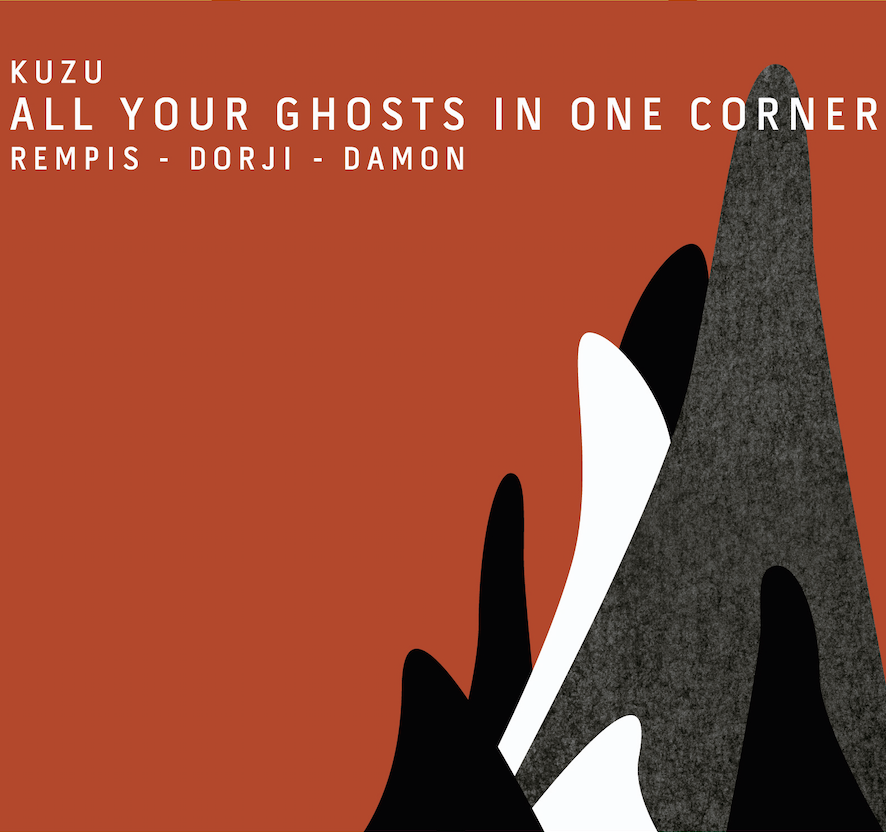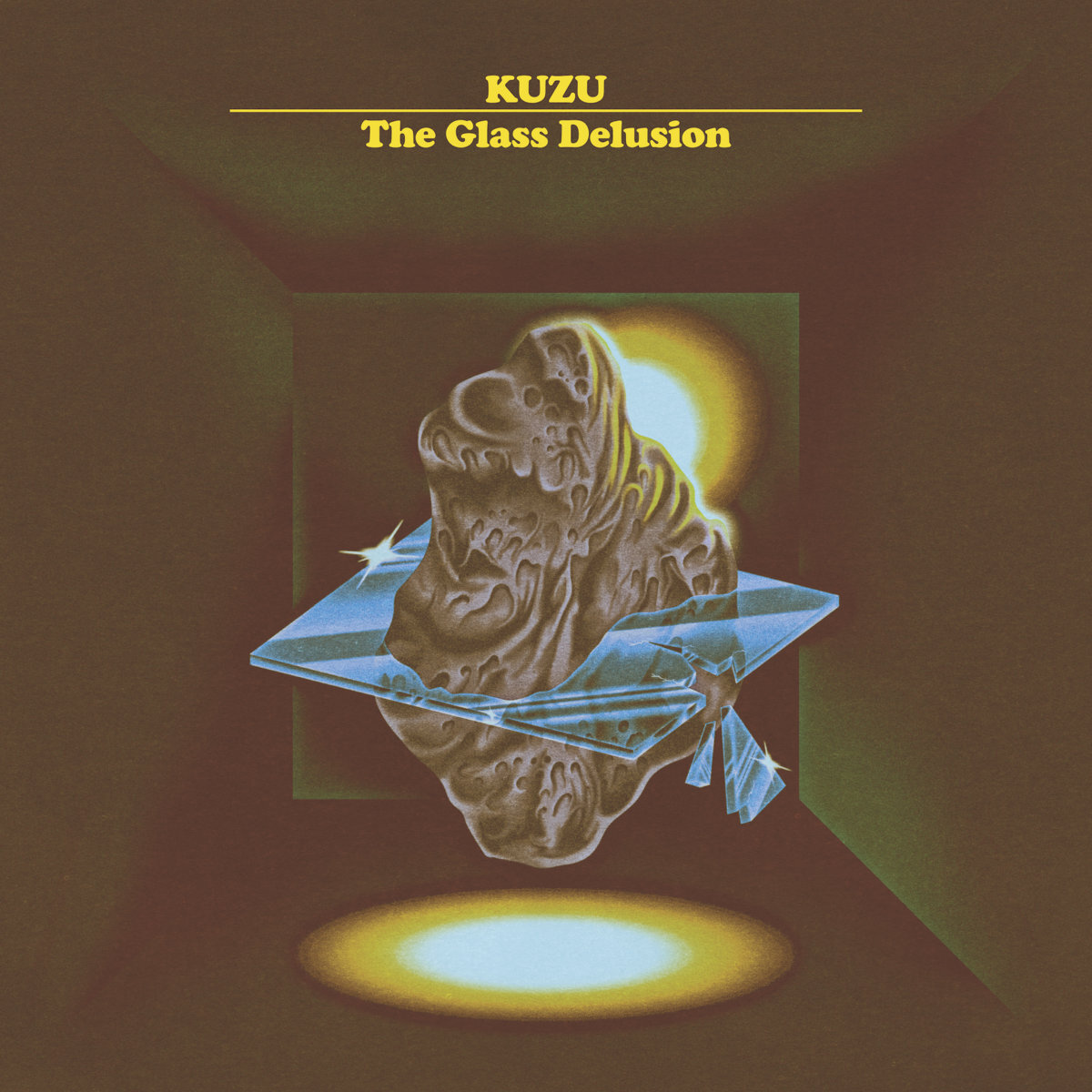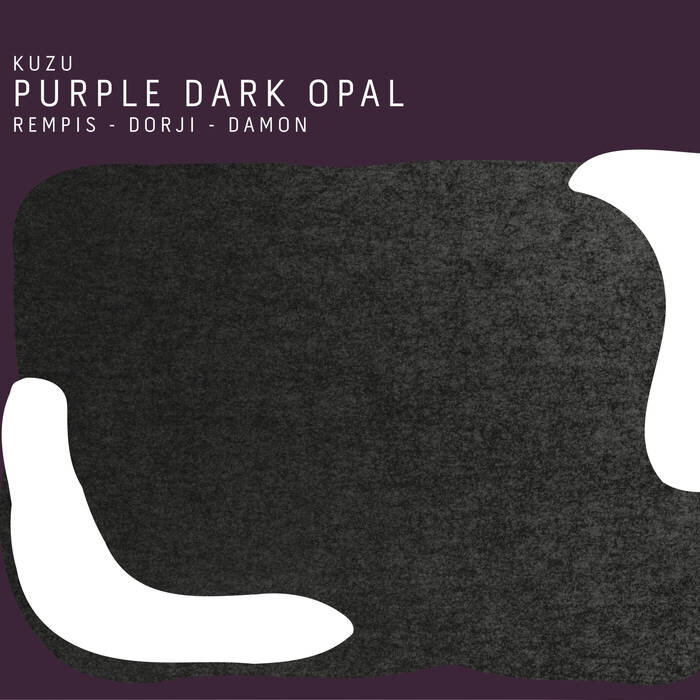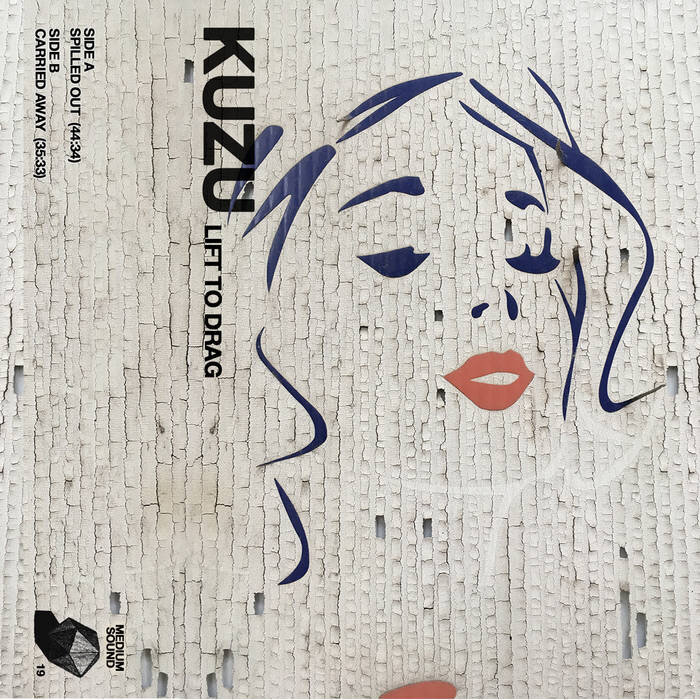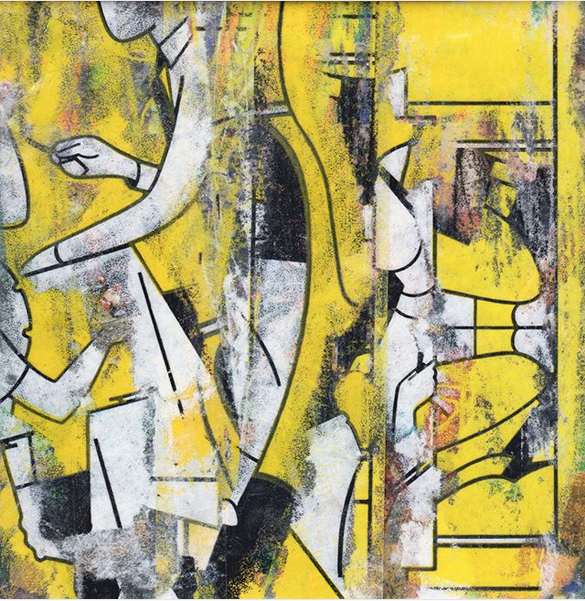Kuzu
Dave Rempis - saxophones
Tashi Dorji - guitar
Tyler Damon - percussion
photo by Julia Dratel
ABOUT
KUZU is a hard-charging but patient trio that came together in the fall of 2017, after saxophonist Dave Rempis, a stalwart of the Chicago improvised music scene, worked with both Tashi Dorji (guitar) and Tyler Damon (drums) individually as part of a lengthy solo tour of the U.S. that he undertook in the spring of that year. Dorji and Damon’s work as a guitar/percussion duo has become well-known, a highly refined and specific language developed through relentless touring and recording over the last few years, with a sound that straddles improvised music, rock, and any number of as-yet-undefined territories. These two provide an incredibly fresh take on the possibilities inherent to spontaneous composition. Superimposing Rempis into this mix was a logical next step after the relationships they’d forged individually. The trio’s discography includes Hiljaisuus (Astral Spirits/Aerophonic 2018), Lift To Drag (Medium Sound, 2019) Purple Dark Opal (Aerophonic Records, 2020), and The Glass Delusion (Astral Spirits, 2021). Their next release, All Your Ghosts In One Corner is slated for release in September 2021 on Aerophonic Records, and they’ll be making their European debut in support of the record in November 2021 with a 17-concert tour.
Musically, these three create a highly focused pallet of sounds. At times, spacious gestures carve up the canvas with the austerity of a calligrapher, while at others those sparse gestures build into an unstoppable tsunami of energy. Those waves are never impulsive or impetuous though, they ebb and flow logically and patiently out of simple and clearly defined sources. Rempis’ penchant for pentatonic melodies and rough and tumble timbres combines seamlessly with Dorji’s thick, raw sound and singular approach to intonation, buttressed by Damon’s rapid-fire yet powerful stickwork, to produce a music that’s exquisitely detailed at any one point in time, yet carries the narrative arc of their often set-length explorations without ever losing its coordinates. In this music you can hear the many hours together in a van roaming the hills of Tennessee and Pennsylvania, the plains of Texas and Illinois, and the forests of North Carolina and New England, trading playlists ranging from jazz icons like Pharaoh Sanders and Yusef Lateef to Scandinavian black metal bands like Craft and Darkthrone. While this isn’t a new thing in creative music – broad ears are a trademark of musicians in this world - what makes the pairing so unique is the truly organic way in which they string these influences together into a coherent sound. This isn’t a Frankenstein pastiche of bits and pieces held together with duct tape and glue, and a paper-thin conception. This is an emotionally deep and sincere effort to join genuinely disparate influences arrived at only through patient toil. When we ask if Rempis is channeling Coltrane, or a Turkish clarinet player; does Dorji sound like a Delta bluesman, or a southeast Asian rocker from the 70’s; is that Art Blakey or John Bonham rolling out through Damon’s toms; the answer is undoubtedly all of the above. And yet, despite the breadth of the trio’s inspirations, their music never collapses under the weight of its aspirations, fearlessly carving out a new corner in the broader sonic landscape.
PHOTOS
all photos by Julia Dratel
RECORDINGS
VIDEOS
PRESS
Thank your lucky stars that Kuzu's previous disc Hiljaisuus (Aerophonic/Astral Spirits, 2019) was not a one-off meeting. That recording, their first concert together in 2017, inspired the trio to tour and explore their brand of free jazz. Purple Dark Opal, recorded live in Milwaukee in October 2018, found the trio in the midst of an extended concert tour. Documented here is proof they were indeed firing on all cylinders…..This music merges more passion and emotions than a David Mamet play….There is a sense of John Coltrane's A Love Supreme (Impulse!, 1965) that permeates this concert. As Coltrane drew from jazz, gospel, and Eastern music, Kuzu do too, updating their approach with rock, metal and the tools of free jazz. We hear Rempis' patented rip, tear, crunch sound, but also there is a tranquility about this music not found in most free jazz. -Mark Corroto, All About Jazz
What is Purple Dark Opal? It is the sound of an extraordinary working band really hitting their stride. As a listener, we get the sense that these three have become intimately familiar with each other since Hiljaisuus. Like three old friends playing a high-stakes game of poker, they are embroiled in musical gamble that could derail in an instance of hesitation or failed bluff. But for all the runs, flushes and an all-in mentality, there is not a wasted minute where we catch them floundering. For existing fans or newcomers to Kuzu’s music, Purple Dark Opal is an essential recording that showcases this group’s prowess when left to their own devices. 5 Stars. -Taylor MacDowell, The FreeJazzBlog
Free jazz played at the highest level by a group of like minded musicians with no egos involved. The music flows organically, in a stream of pure sound. Tim Niland, Jazz And Blues Blogspot
Hiljaisuus is the Finnish word for silence, and that’s one thing that you will not encounter across the two sides of this LP. Kuzu is a trio that plays free jazz and voltage-enabled improvisation. Dave Rempis is one of the loudest saxophonists in Chicago, a town not known for its retiring reedists, and Asheville, N.C.-based guitarist Tashi Dorji is a master at making six strings sound as big as a bridge’s suspension cables. Percussionist Tyler Damon, who recently left Indiana for the Windy City, combines a sculptural approach to sound with an unreformed ex-skater kid’s love for blurry, break-neck motion. This music is varied and dynamic, but silence isn’t part of the recipe. Excitement is, whether the band is snarled in a three-way tangle or one member of it is blazing flat-out while the others give him space. - Bill Meyer, Magnet
Chicago-based saxophonist Dave Rempis' openness to collaboration yields new partnerships at an astounding rate. He played in separate duos with both guitarist Tashi Dorji and drummer Tyler Damon during his 2017 solo tour of the USA. The drummer and guitarist are already an established pairing, so perhaps it was inevitable that Rempis would reunite with both, the resultant threesome being given the name Kuzu. On Hiljaisuus, they unveil a distinctive slant on the power trio, obvious right from the start. While the combination of power and purpose will blow away any cobwebs in style perhaps, more unexpectedly, it will also stimulate and engage in equal measure. 4.5 stars. -John Sharpe, All About Jazz
The music on Hiljaisuus is a game of recurring structures. Harmonic islands consisting of staccato and repetitive patterns are used as springboards and fixed points for further improvisation. “Fontanelles 1“, for example, starts with bowed cymbals and arpeggiated guitar chords before Rempis creeps into this structure with mournful lines reminding me of a wounded to death Peter Brötzmann playing John Coltrane’s “Alabama“. Dorji breaks up this structure and after seven minutes the trio reaches a first peak of intensity, with Damon playing dark, almost cymbal-free rolls. Soon Dorji and Rempis agree on one of these aforementioned repetitive unison patterns, they cling to it and open it up as soon as it seems useful. Dorji’s cold, metallic, and percussive tone is often foiled by Rempis’ and Damon’s extreme emotionality - contrast and imitation being further creative tools the trio makes use of. This way, Rempis, Dorji, and Damon invent an enormously tight pallet of sounds, energy being another compositional constituent. In “Gash“, the last of three tracks, the trio generates a constant ebb and flow, starting from coarse chopping that builds a massive, compact wave of sound creating an atmosphere that is tense to the breaking point. Finally, the piece returns to the beginning of “Fontanelle 1“, where everything started. Hiljaisuus is the Finnish word for silence, but the music on this album is the most eloquent silence you’ve ever heard. -Martin Schray, The Free Jazz Blog





